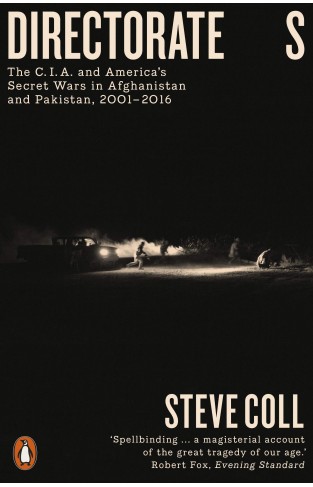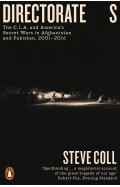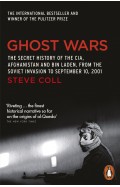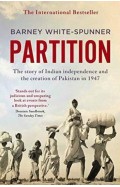- Home
- Books
- Categories
- Non Fiction
- History
- Directorate S: The C.I.A. and America's Secret Wars in Afghanistan and Pakistan, 2001–2016
Directorate S: The C.I.A. and America's Secret Wars in Afghanistan and Pakistan, 2001–2016
By: Steve Coll
-
Rs 4,315.50
- Rs 4,795.00
- 10%
You save Rs 479.50.
Due to constant currency fluctuation, prices are subject to change with or without notice.
From the Pulitzer Prize winning of the acclaimed Ghost Wars, this is the full story of America's grim involvement in the affairs of Afghanistan from 2001 to 2016. In the wake of the terrible shock of 9/11, the C.I.A. scrambled to work out how to destroy Bin Laden and his associates. The C.I.A. had long familiarity with Afghanistan and had worked closely with the Taliban to defeat the Soviet Union there. A tangle of assumptions, old contacts, favours and animosities were now reactivated. Superficially the invasion was quick and efficient, but Bin Laden's successful escape, together with that of much of the Taliban leadership, and a catastrophic failure to define the limits of NATO's mission in a tough, impoverished country the size of Texas, created a quagmire which lasted many years.
At the heart of the problem lay 'Directorate S', a highly secretive arm of the Pakistan state which had its own views on the Taliban and Afghanistan's place in a wider competition for influence between Pakistan, India and China, and which assumed that the U.S.A. and its allies would soon be leaving.
Steve Coll's remarkable new book tells a powerful, bitter story of just how badly foreign policy decisions can go wrong and of many lives lost.
From the Pulitzer Prize winning of the acclaimed Ghost Wars, this is the full story of America's grim involvement in the affairs of Afghanistan from 2001 to 2016. In the wake of the terrible shock of 9/11, the C.I.A. scrambled to work out how to destroy Bin Laden and his associates. The C.I.A. had long familiarity with Afghanistan and had worked closely with the Taliban to defeat the Soviet Union there. A tangle of assumptions, old contacts, favours and animosities were now reactivated. Superficially the invasion was quick and efficient, but Bin Laden's successful escape, together with that of much of the Taliban leadership, and a catastrophic failure to define the limits of NATO's mission in a tough, impoverished country the size of Texas, created a quagmire which lasted many years.
At the heart of the problem lay 'Directorate S', a highly secretive arm of the Pakistan state which had its own views on the Taliban and Afghanistan's place in a wider competition for influence between Pakistan, India and China, and which assumed that the U.S.A. and its allies would soon be leaving.
Steve Coll's remarkable new book tells a powerful, bitter story of just how badly foreign policy decisions can go wrong and of many lives lost.
Directorate S: The C.I.A. and America's Secret Wars in Afghanistan and Pakistan, 2001–2016
By: Steve Coll
Rs 4,315.50 Rs 4,795.00 Ex Tax :Rs 4,315.50
Ghost Wars - The Secret History of the CIA, Afghanistan and Bin Laden
By: Steve Coll
Rs 4,315.50 Rs 4,795.00 Ex Tax :Rs 4,315.50
The Achilles Trap: Saddam Hussein, the United States and the Middle East, 1979-2003
By: Steve Coll
Rs 6,295.50 Rs 6,995.00 Ex Tax :Rs 6,295.50
Zubin Mehta: A Musical Journey (An Authorized Biography)
By: VOID - Bakhtiar K. Dadabhoy
Rs 892.50 Rs 1,050.00 Ex Tax :Rs 892.50
The Origins of Political Order From Prehuman Times to the French RevolutioN
By: Francis Fukuyama
Rs 4,045.50 Rs 4,495.00 Ex Tax :Rs 4,045.50
Manning Up: How the Rise of Women Has Turned Men into Boys
By: Kay Hymowitz
Rs 845.75 Rs 995.00 Ex Tax :Rs 845.75
The Obama Syndrome: Surrender At Home War Abroad
By: Tariq Ali
Rs 1,100.75 Rs 1,295.00 Ex Tax :Rs 1,100.75
The Quest For Meaning: Developing A Philosophy Of Pluralism
By: Tariq Ramadan
Rs 1,185.75 Rs 1,395.00 Ex Tax :Rs 1,185.75
No recently viewed books available at the moment.
Zubin Mehta: A Musical Journey (An Authorized Biography)
By: VOID - Bakhtiar K. Dadabhoy
Rs 892.50 Rs 1,050.00 Ex Tax :Rs 892.50
Directorate S: The C.I.A. and America's Secret Wars in Afghanistan and Pakistan, 2001–2016
By: Steve Coll
Rs 4,315.50 Rs 4,795.00 Ex Tax :Rs 4,315.50
Ghost Wars - The Secret History of the CIA, Afghanistan and Bin Laden
By: Steve Coll
Rs 4,315.50 Rs 4,795.00 Ex Tax :Rs 4,315.50
The Achilles Trap: Saddam Hussein, the United States and the Middle East, 1979-2003
By: Steve Coll
Rs 6,295.50 Rs 6,995.00 Ex Tax :Rs 6,295.50

















-120x187.jpg?q6)





-120x187.jpg?q6)

-120x187.jpg?q6)







